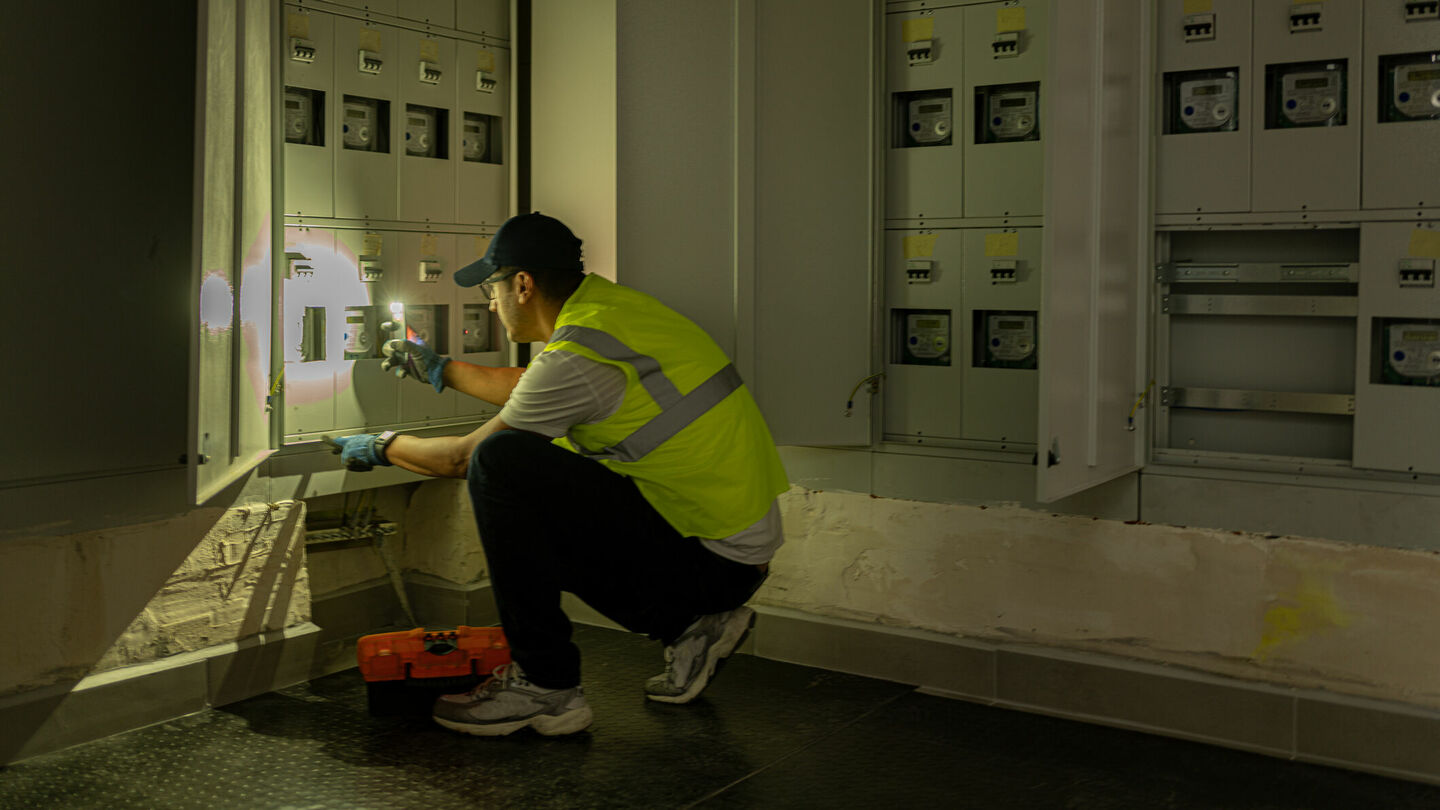
What happens if the lights go out on campus?
From diesel generators to crisis plans: how TU/e shields itself against power outages
Lecture halls without power, halted experiments, and a faltering Wi-Fi signal. A prolonged power outage on campus could have serious consequences. Since the large-scale power outage in Spain and Portugal – which left millions without electricity and even put lives at risk – such a scenario has become increasingly conceivable. How well prepared is TU/e for something like this?
The whole world watched as large parts of Spain and Portugal lost power in late April. Footage of stranded trains, hospitals forced to switch over to emergency power and residents left without internet or air conditioning showed just how vulnerable modern society is without electricity. A prolonged power outage would have a major impact on the TU/e campus as well. What would happen to education and ongoing research in such an event? And how well prepared is TU/e for something like this? Press officer Frans Raaijmakers answers Cursor’s questions.
How long could the university provide its own energy needs in the event of a power outage?
“TU/e has two emergency diesel generators which – with the current amount of diesel in the tanks – can guarantee power for about eight hours. Provided that the diesel supply is replenished in time, these generators could, in principle, take over the power supply indefinitely. The emergency power generators are checked weekly to see if everything is in order. In addition, there is a test run every month, and once a year, the generator is tested without external power.”
“It’s important to emphasize, however, that these emergency generators are not capable of powering the entire campus, though they do guarantee the operation of all vital security facilities. These include the network, Wi-Fi, fire alarm systems and evacuation systems. Our data center facility is managed by an external party, which also provides emergency power solutions.”
What would a prolonged power outage mean for education and research?
“For education and ongoing research, the responsibility lies with the departments themselves. Several departments use UPS systems (Uninterruptible Power Supplies, Ed.) for their critical equipment. These ensure that, in the event of a power failure, power is transferred immediately and seamlessly so that important systems can continue to operate (temporarily).”
“There’s a possibility that a part of education and research will be temporarily suspended during a large-scale power outage. For example, things like lighting, projectors and screens would be affected. Since the network and servers would still be up and running, students and staff could access all digital resources from home, provided they have power themselves. And with a nationwide outage, that would be doubtful, of course.”
What is the potential damage in the event of such an outage?
“That’s difficult to predict because it strongly depends on the duration and cause of the outage, and whether it’s a local or nationwide problem. In the case of a nationwide outage, which is what happened in Spain and Portugal, the question of how soon everything becomes operational again at the national level also plays a large role.”
“One clear observation we made after the cyber-attack, something that is of great value to our organization, is how our employees responded in a time of crisis: with great understanding, involvement, and commitment. They worked together excellently, rolled up their sleeves, and managed to find solutions time and again, even under tough circumstances. So as an organization, we’ve proven to be resilient in times of crisis.”
Is there a plan for such scenarios?
“Yes. There is a central crisis plan in place that outlines how the university will respond in crisis situations. Officers who play a role in the crisis organization are trained and prepared. In the event of an actual crisis – or a threat – they are alerted and deployed. That is also what happened during the cyber-attack in January of this year. The Central Crisis Team (CCT), led by Vice President of the Executive Board Patrick Groothuis, sprang into action immediately. After a crisis situation, drill, or training is over, it’s evaluated, and the lessons learned are incorporated into the further development of the crisis plan.”

Discussion